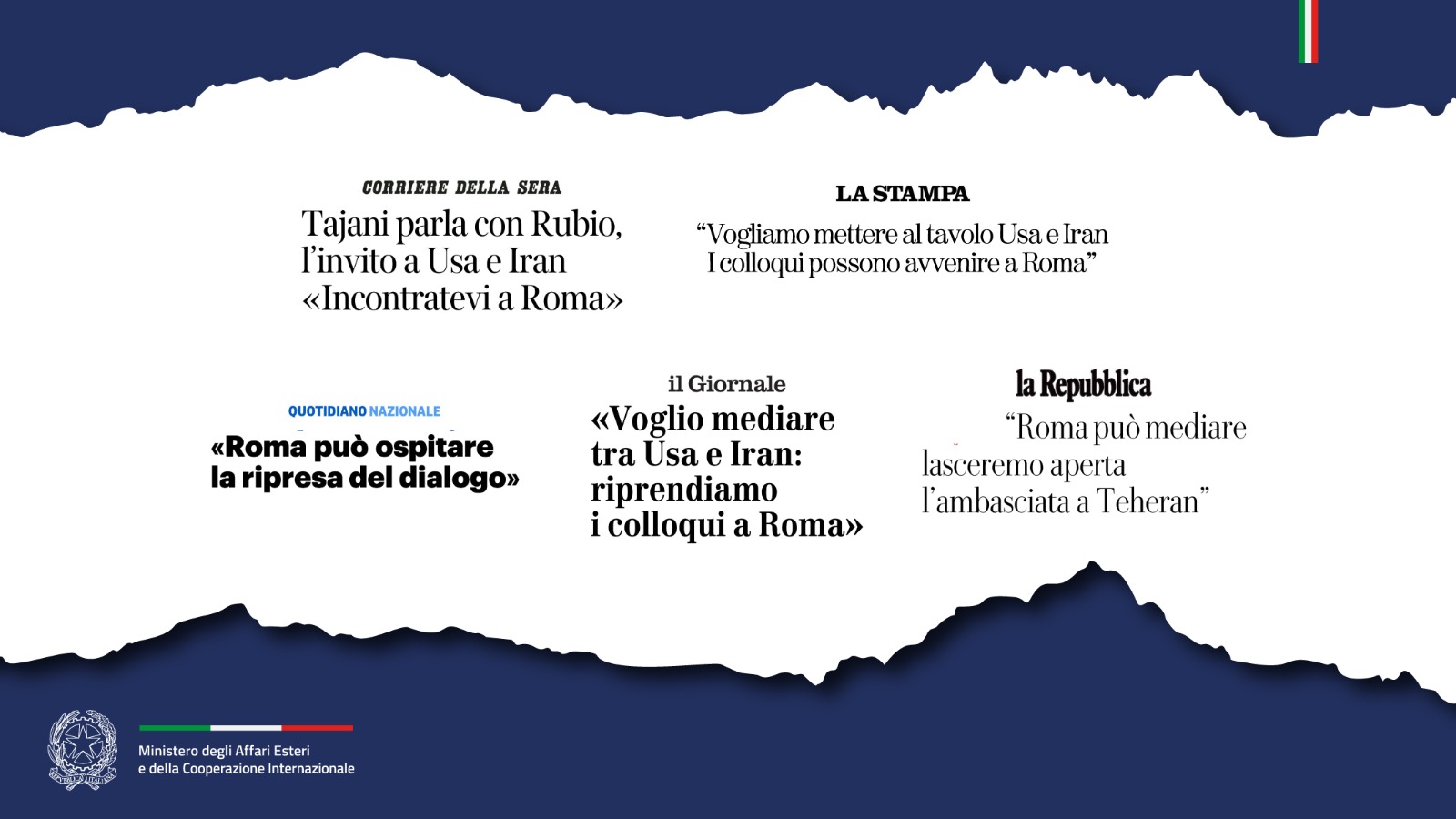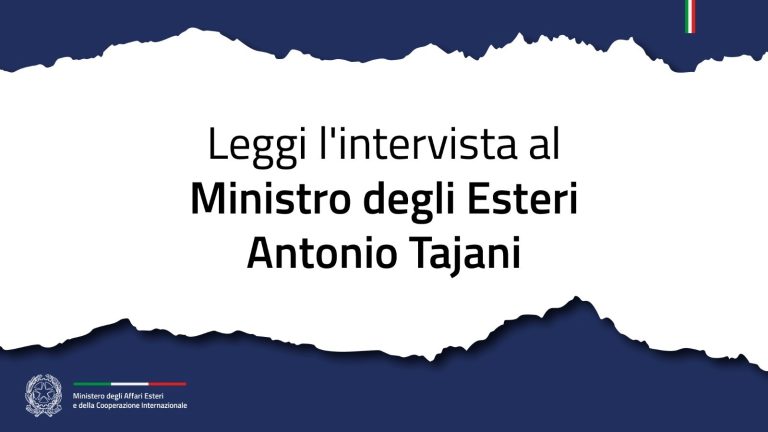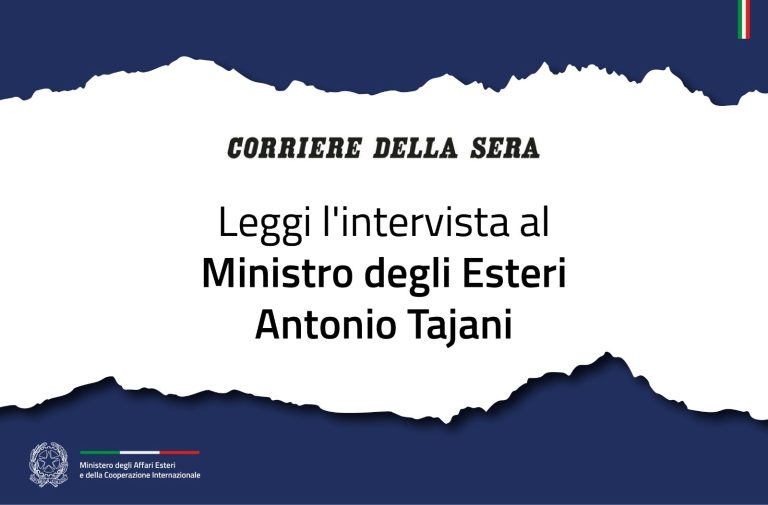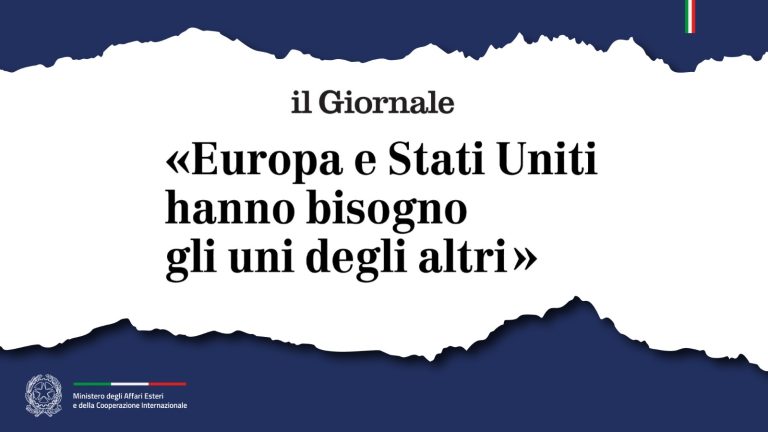“The US attack was in the air, but we were not informed beforehand.” In the evening, Minister Tajani, after a day that had begun shortly after two in the morning, received a small group of journalists in his office at the Foreign Ministry. Immediately after a long meeting with about twenty ambassadors affected by the crisis – including diplomats in Moscow, Beijing and Washington – the Foreign Minister tried to take stock of a situation that is currently floating between the wait for an Iranian reaction and the need to trust the United States when it claims it has no plans to proceed with new attacks. “I am not playing the soothsayer,” he said, somewhat puzzled, referring to the assurances provided by the US Secretary of State, Marco Rubio. An indication that is only a flash of the long hours spent yesterday “waiting for news” and “trying to understand what could happen.” At times hectic hours, starting with the phone call at dawn with the ambassador to Iran, Paola Amadei, and culminating with his attempt to speak with the Iranian Foreign Minister, Abbas Araghchi, flying to Moscow in the afternoon.
Minister Tajani is following the policy line established in the morning in the video meeting with Giorgia Meloni and the other Ministers involved, i.e. to protect approximately 50 thousand Italian citizens who live in the area, avoid escalation and nominate Rome – “while letting diplomacy work” – to host a round of dialogue between Iran and the United States for the third time. An ambitious goal at this stage. But, on the other hand, it comes from those who, a few hours before the attack, on Friday, tried to put Araghchi and Rubio in contact, urging for a direct and exclusive exchange of views. Minister Tajani, however, explained: “I have not received a response from Iran.” In any case, he reiterated that “the goal is to have them sit at the same negotiating table without intermediaries” and he nominated again Rome, while on the large desk, full of notes, he touched a series of maps highlighting the impact points of the bombs dropped by the United States and, above all, the escape routes that the Foreign Ministry is using to bring to safety the Italians who, among the 50 thousand living in the area, have requested to leave. Over the last few hours two convoys have left from Tel Aviv under the bombing, and from Jerusalem, with families, residents and compatriots who have lived in Israel for years. Once reached the border, they are taken over by Italian diplomats in Egypt to be taken to Sharm el-Sheikh, from where a charter flight has already brought some of them back to Verona. The same will happen between today and tomorrow for those who live in Tehran, passing through the Azeri border and the city of Astara, on the Caspian Sea. The Minister specified: “It is not an evacuation, but an orderly return.”
While on the logistics level there is fervent activity, on the military level, however, waiting seems to prevail. As La Stampa has already reported in recent days, the government has ordered the redistribution of some units and detachments, as well as the repatriation of a Carabinieri contingent. At this stage, however, as Minister Tajani explained, “no other repositioning is underway.” Nor is there now the possibility that Italy may be involved in war manoeuvres, as he added, hinting at the issue of the US bases in Italy. He underlined: “No request has come from the United States”. At least so far, that is clear. In any case, there are still many unknown factors. For example, the government is concerned about the possible domino effect in the Strait of Hormuz. The risk that Iran will react by attacking naval traffic is taken into consideration, although – according to Minister Tajani – the action would be “self-destructive and would also harm their own economy”, given the importance of the junction that divides the Arabian peninsula from the coasts of Iran and constitutes a solid trade route towards Asia and, specifically, China. No option, however, is ruled out. Ad admitted by the Minister, “anything can happen and this is the reason why our embassy in Tehran remains open: we want to continue dialogue, pushing so that there are no attacks on US bases and any further escalation is avoided”. With reference to a possible widening of the conflict, the Foreign Minister is still convinced that Russia and China will confine themselves to taking “political positions condemning” the US attacks, without having the intention “of making any kind of intervention”.
The Minister, however, seemed less optimistic when it came to the Houthi rebels in Yemen, who could take advantage of the current instability to put the EU Aspides mission (i.d. the mission, of which Italy is a part, which protects the passage of ships between the Gulf of Aden and the Red Sea) back under siege. In short, risk assessments are currently focused on Italy. Minister Tajani referred to the Interior Ministry and the increased security measures around all diplomatic offices, Jewish places of worship and sensitive targets. In the Minister’s interpretation, in fact, the current crisis is one of the most complex in recent decades, probably comparable – in terms of political impact – to September 11 or the invasion of Kuwait. And precisely for this reason, he added that a qualitative leap forward is needed also on the European level: “As long as we take action as individual States, we will never have the necessary political weight. We need a common foreign policy, we need Europe to really count”. A hope that the Minister will bring to the table of today’s Ministerial Council.





